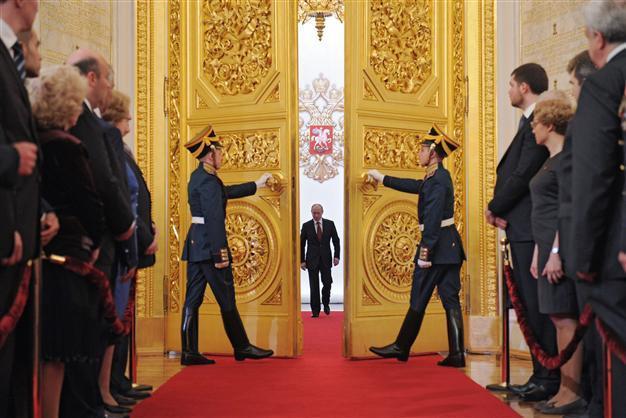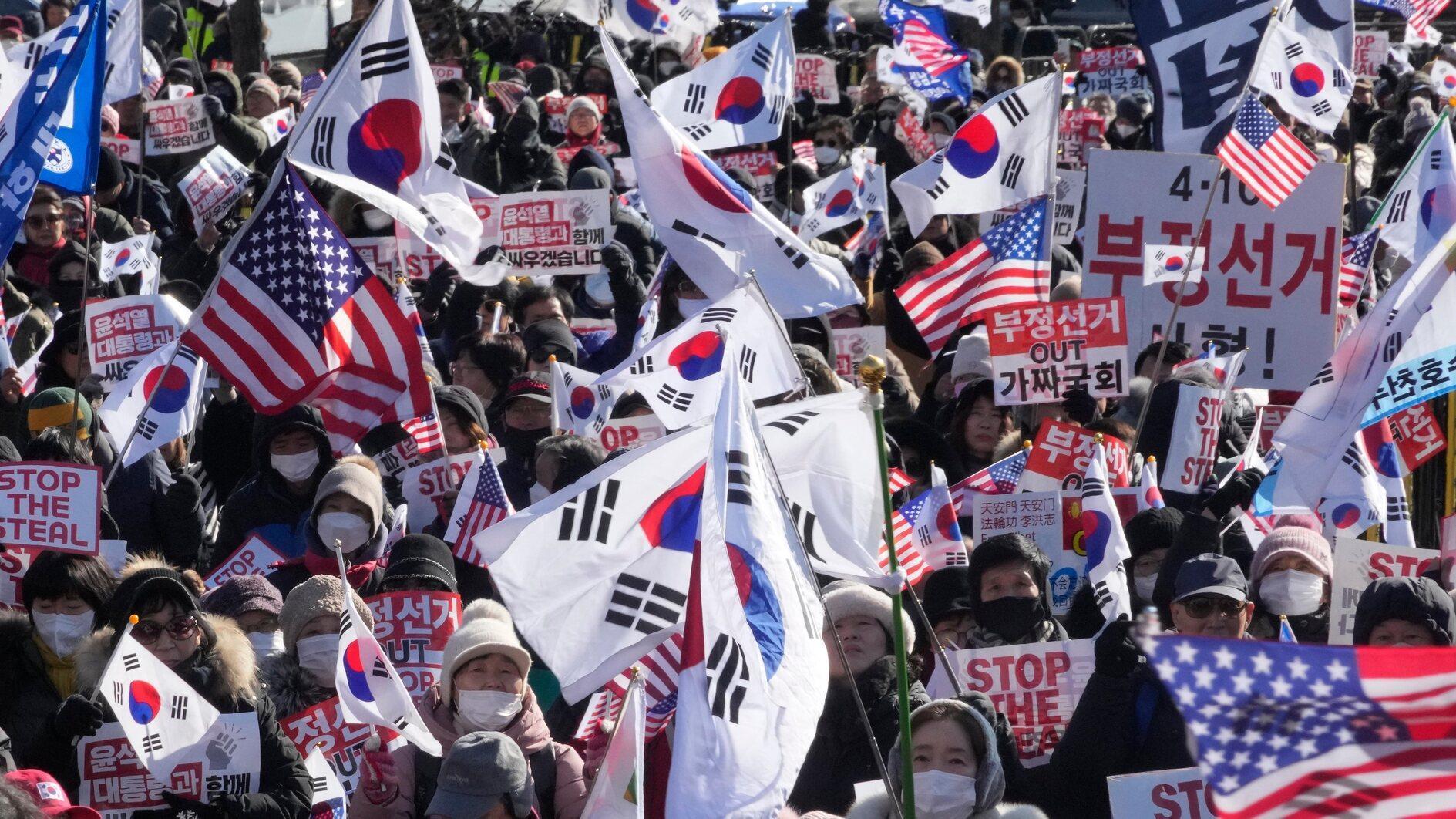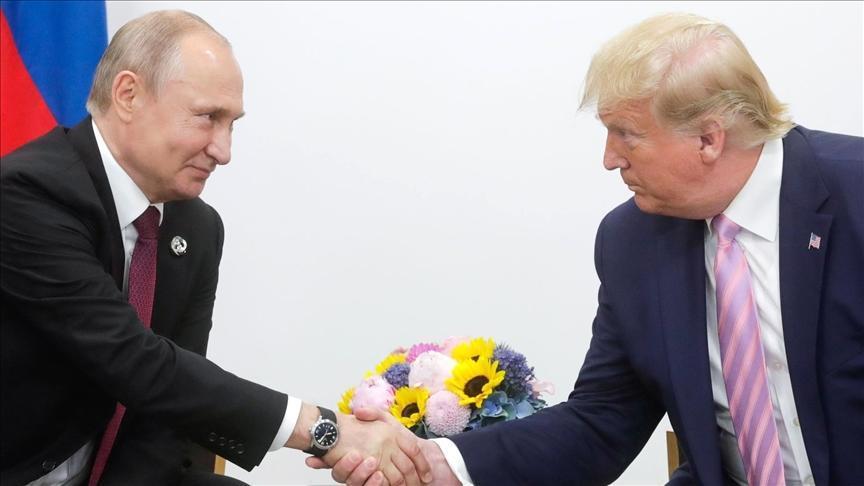Putin marks year since election at peak of power
MOSCOW - Agence France-Presse

A file picture taken on May 7, 2012, shows Russia's President Vladimir Putin (C) entering Andreyevsky (St.Andrew's ) Hall at the Great Kremlin Palace in Moscow?s Kremlin during his inauguration ceremony. AFP photo
Russian President Vladimir Putin marks a year since his election to a third term Monday riding a tide of popularity despite his crackdown on political freedoms and tense ties with the United States.The 60-year-old former KGB spy won an overwhelming 63.6 percent of the vote in March 4 elections that included a weak field of candidates who refused to challenge Putin on any issue.
He had been serving as former president Dmitry Medvedev's prime minister for four years before the two agreed to swap seats in an arrangement that could theoretically extend Putin's rule to over two decades.
Putin's election was preceded by the first tide of large anti-Kremlin protests in the post-Soviet era and included the rise of young opposition stars -- many making their name through social networks -- who dreamt of challenging Putin in 2018.
The Russian leader's response was swift upon his election: the Kremlin rammed through parliament laws threatening protesters with huge fines and branding groups with funding from abroad as "foreign agents" -- the local term for a spy.
"Because his position weakened, his politics hardened," INDEM political research institute analyst Yury Korgunyuk said in an interview.
"As our society splintered, Putin acted to minimise the emerging threat," Humanitarian and Political Studies Institute analyst Vladimir Slatinov agreed.
"I do not think that he was doing it with any great deal of pleasure. I think that he would have preferred to pursue political reforms," he told the state-run RIA Novosti news agency.
Putin blamed the protests directly on funding from the US State Department -- a charge that only further marred relations already hurt by Moscow's decision to veto UN sanctions against Syrian President Bashar al-Assad.
Yet this was only the start of the diplomatic sparring. The two sides' relations very soon began plumbing the lows they experienced during Putin's first stint in power between 2000 and 2008.
Russia's refusal to prosecute those responsible for the death in pre-trail detention of a Russian lawyer who exposed massive state fraud resulted in the imposition of US travel bans against Moscow officials.
Moscow responded by barring US families from adopting Russian children -- a move that drew global outrage and appeared aimed at raising the level of nationalist rhetoric on which Putin's popularity was built.
The Kremlin's confrontational strategy appears to have left Putin more isolated abroad while still incredibly popular among ordinary Russians who are still smarting from their country's diminished post-Soviet status.
A poll by the respected Levada Centre found that 65 percent of respondents thought that Putin did more good for his country in the past year than bad.
Less than one in five thought Putin was ruining Russia.
The poll also found that the largest group -- one of 36 percent -- viewed Putin's greatest achievement as his ability to "return Russia its great power status." The third most popular answer showed people applauding Putin's success at "overcoming separatist tendencies (inside Russia) and keeping it from falling apart." "This was a year in which Putin tried to calm the people by showing that he has the situation under control," political analyst Pavel Svyatenkov told RIA Novosti.
"The most important thing is that Putin did not change (from his first two terms in power)," said Higher School of Economic professor Leonid Polyakov.
"He understands his mission, his responsibility to the job of serving Russia," Polyakov told the IA Regnum news agency.
Putin himself has thus far not remarked on the anniversary and continued on with a schedule that includes talks in Moscow with Ukrainian counterpart Leonid Kuchma.
But a group of his supporters erected a wall of flowers in central Moscow reading "Russia for Ever".
















